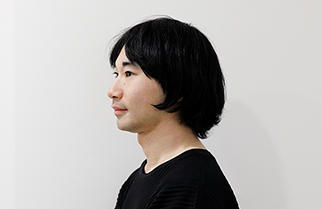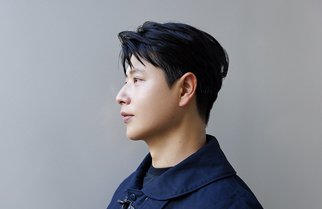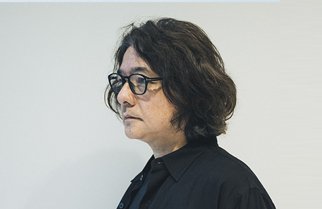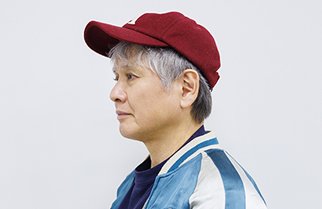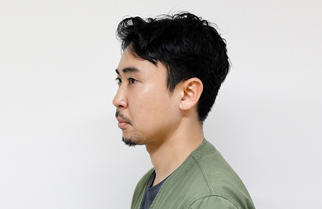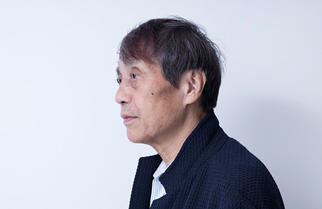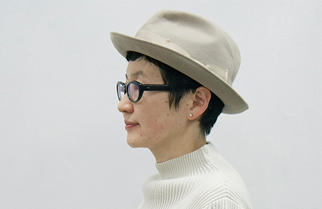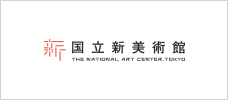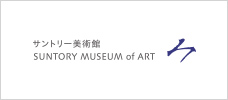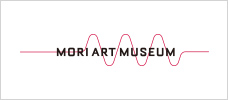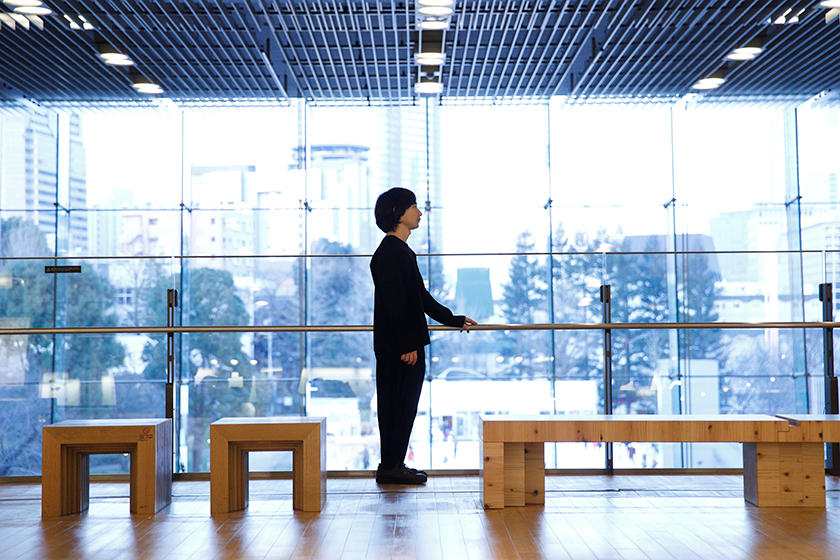
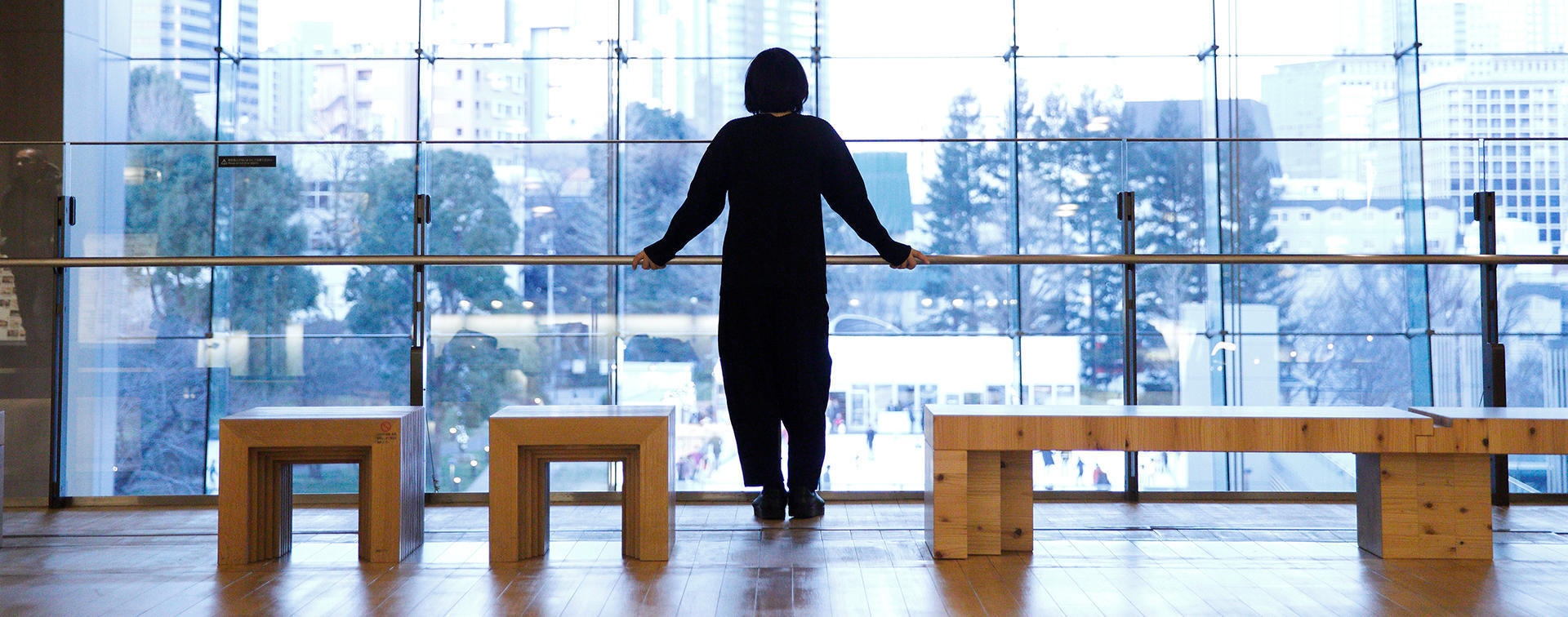
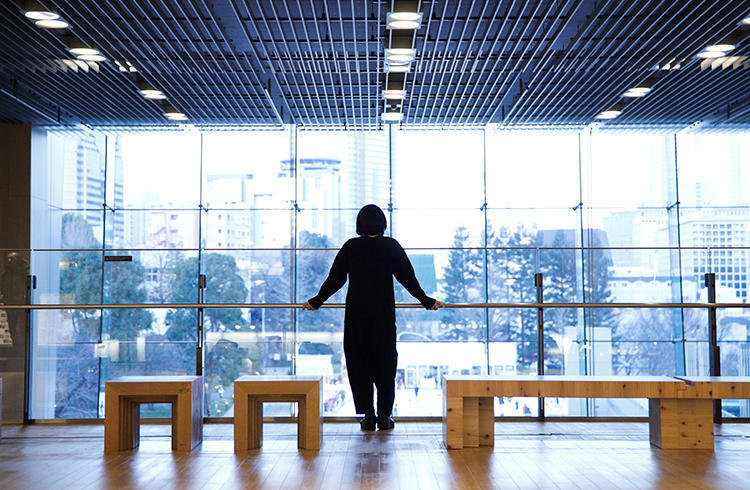
INTERVIEW
101
Ei WadaArtist / Musician
A night parade with an electromagnetic portable shrine and an electromagnetic kiss
What machines can do and what humans can do – the competition between them is fun
Ei Wada makes music in many ways: at times he uses open-reel tape recorders as instruments, or old household appliances that have been transformed into electronic instruments, and at other times, he uses his own body. Wada gains attention for the one-of-a-kind works and performances he creates in the fields of music and art. He will participate in the School of the Future Festival by Tokyo Midtown and Ars Electronica which will be held from February 21, 2019. We asked him about the starting point of his work, the performance at the School of the Future Festival, and where he hopes to take his art – a unique art created from combining technology with used household appliances – in the future.
The starting point was the experience of my body movement being linked to sound
I turn mainly old household appliances into musical instruments and use them in performances; my activities stem from the fantasies I had as a child. When I picked up radio waves from a faraway broadcasting station and heard the shaky, crackling static noise, or when I saw the snowstorm on the CRT-TV screen, I felt as if radio and television were devices that could catch things that were beyond human perception, and I felt that there was a mysterious world on the other side. The expression I invented for this is "ikaij jocho" (atmosphere of a different dimension). I think that this sensation is felt by quite a lot of people. It's just that in my case, my fantasies grew bigger and I imagined there was an electronic monster and I became seriously obsessed. (laughs) The performances I put on now are like the realization of a certain worldview ― of a parallel world that continues to expand in my fantasies.
In junior and senior high school, I kept fiddling with an open-reel tape recorder, and that experience is what got me started into transforming household appliances into musical instruments. When the motor broke and I turned the reel with my hand, it emitted a really weird sound as if time and space had become warped. I was shocked and felt as if I had encountered an instrument from a strange country. At the same time, the experience was of my body movement being linked to sound. It was like the first time that you play the strings of a guitar and you hear the twang. The experience eventually led to me to create "Open Reel Ensemble".
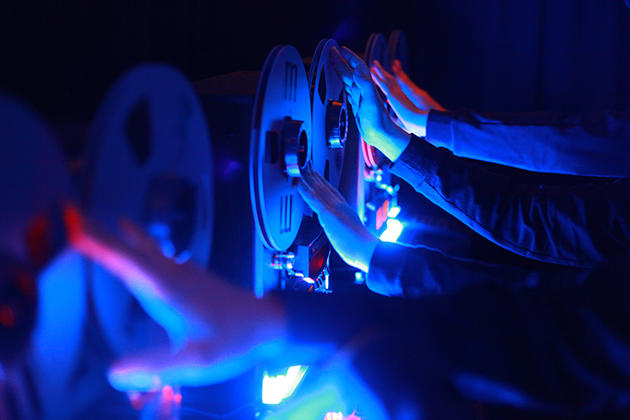
Open-reel tape recorder
Before the invention of the cassette tape recorder, open-reel tape recorders with magnetic tape held on reels were used as recording devices. Wada belongs to "Open Reel Ensemble", a performance group which uses open-reel tape recorders as musical instruments. The three members of the group - Ei Wada, Haruka Yoshida and Masaru Yoshida ― create innovative music by directly touching the reels and tapes with their hands, and fusing the sounds with the computer. The group has made music for ISSEY MIYAKE's Paris Collection.
And before I was even conscious of what I was doing, I was thrumming CRT-TV screens. (laughs) Among the instruments I have made is the CRT-TV Gamelan. Explained simply, this is played by picking up electromagnetic waves with your hands that come from the CRT-TV screen; sound is generated because a coil fastened to your leg is connected with the guitar amplifier, and your body becomes an antenna. I'm often asked in interviews, "What made you start thrumming CRT-TV screens?" but I've forgotten the details of how I came to do it. After I discovered that sounds can be made by catching electromagnetic waves, the memories seem to have flown from my head. All I know is that when I came to my senses, I was just absorbed with thrumming CRT-TV screens. (laughs)
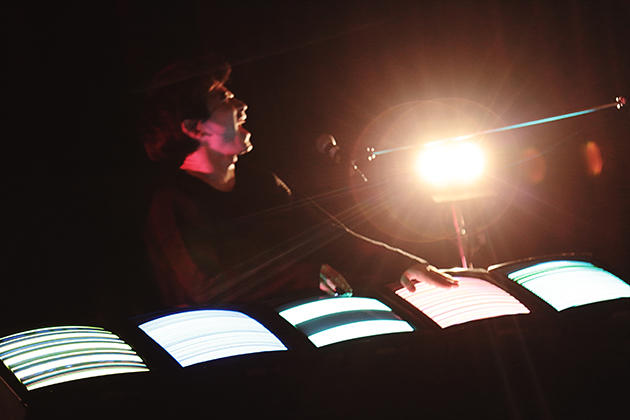
CRT-TV Gamelan
An electromagnetic musical instrument invented by Wada. Electromagnetic waves are picked up from the CRT-TV screens by the performer's hands, and sound is generated as the electromagnetic waves travel through the coil which is fastened to the performer's legs and connected to a guitar amplifier. The tone and pitch of the sounds change depending on patterns of the stripes which appear on the TV screens. The performer uses the TVS as percussion instruments, controlling the volume of the sounds by the surface of the hands, and rhythmically hitting the screens. Wada won the 13th Japan Media Arts Festival's Excellence Award in the Art Division for "Braun Tube Jazz Band", a solo performance with the CRT-TV Gamelan.
Witnessing the magic of electricity in Southeast Asia and the Middle East
I think I have also been greatly influenced by the scenes I saw overseas as a child. There were several phases I went through to reach the point I am at now. The first phase was when I was small and I was on a trip with my parents to Indonesia where I saw a gamelan. The second phase was when I was a university student and visited Vietnam; I saw a Buddhist statue shining in a glaring light. And what is more, under the flickering fluorescent tube, there was a monk singing a kind of sermon with a microphone and playing an electric stringed instrument. The sounds were extremely distorted. It's funny, isn't it? (laughs) It was as if a scene from a movie had become part of real life and I felt I had witnessed the magic of electricity.
As for electric instruments that shocked me, I was astounded when I encountered the electric saz on a visit to Turkey. The saz is a traditional Turkish stringed instrument, and is originally an acoustic instrument, but there is an electrical version of it. The saz emits sounds called "microtones" which are the sounds that lie between the black and white keys of the piano; the musical scale is distinct, and when you hear it, you can instantly tell that it is Arabian music. And with this electric saz, they were playing incredibly psychedelic music. Also in Turkey, the songs that the mosques broadcast on loudspeakers to notify people of the praying hours could be heart in the streets, and the sounds were absolutely crackled. (laughs) I was given the impression that technology is very magical and miraculous. I think electric and electronic instruments must have been historically used to express the universe; things that are electric and local have a mysterious appeal because they evoke the atmosphere of a different dimension and also the atmosphere of a different country.
When I transform an electric appliance into an instrument, I start by looking for the potentials hidden in it which are not written in the instruction manual. It's like discovering its talents which have been unrecognized till then. I use old electric appliances that are no longer used ― a bit like people who have retired from their jobs on reaching retirement age. They are like grandmas and grandpas who turn out to be very good at doing acrobatic things. I suggest to them "How about doing this?" and then I say, "You are talented! You can become a musical instrument!" It's like recommending a new job.

A performance where electricity is connected and hearts become one
In 2015, I launched a project called "Electronicos Fantasticos (Nicos)" where many people, including engineers, get together to make electronic instruments and play them. I've been invited to participate at the School of the Future Festival by Tokyo Midtown and Ars Electronica which will start February 21, and I will be performing as a member of Nicos.
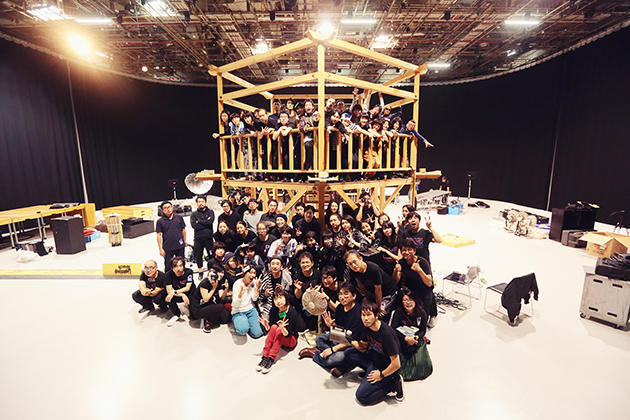
Electronicos Fantasticos!
A project led by Ei Wada where people transform old electrical appliances into electronic musical instruments, mass-producing them and inventing new ways of performing them so that they can eventually form an orchestra. The nickname for the project is "Nicos". Activities are currently held in three locations ― Tokyo, Hitachi and Kyoto. The members of the project are engineers who work at electric manufacturers, as well as musicians, designers, and people who like festivals and music. The members make the instruments while talking about their dreams and exchanging tips and technological information. Performances have been held at many events including Kenpoku Art 2016, and Dawn of the Planet of the Consumed Electronics which is a Nicos festival held under the Tokyo Tower.
Photo by Mao Yamamoto
At the School of the Future Festival, I'm thinking of holding an "energization ceremony" with all the participants, using the CRT-TV gamelans I just talked about. The energization ceremony is a ceremony for creation where people make sounds by picking up the electromagnetic waves from the CRT-TV screens and then join their hands together. I will kick off the event by making a performance, and by the end, I hope that the whole place will become like an instrument.
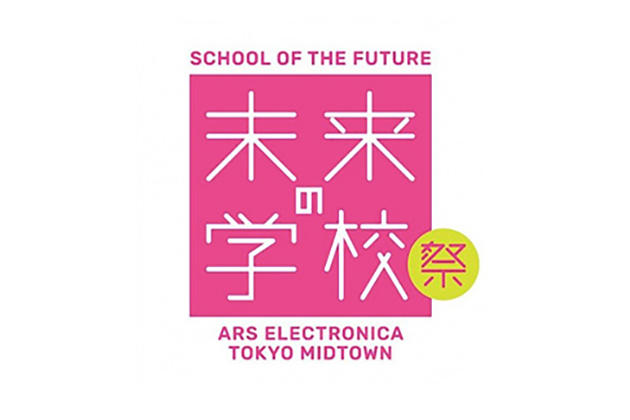
School of the Future Festival by Tokyo Midtown and Ars Electronica
A new event whose concept is to be a "new place to think about future, something that is not taught at school, through design and art." Jointly held by Tokyo Midtown and Ars Electronica, this year's event will introduce some works that were shown at the Ars Electronica Festival in Linz, Austria in 2018. At Tokyo Midtown, a program themed on "giri-giri (on the edge)" will be held, comprising exhibitions, performances, workshops, and talks.
Date: Feb.21 (Wed) - Feb. 24 (Sun) 2019
Time: 11:00-21:00
Venue: Various places within Tokyo Midtown
http://www.tokyo-midtown.com/jp/event/school_future/
The venue at Tokyo Midtown where we will perform is an atrium, so it might be a good idea to think of the lower floor and the upper floor as being different layers of sound. I hope it will be a performance where people and electricity connect, and hearts become one. The energization ceremony will be like a precarious morning assembly of a future school.
I'm also hoping that the performance will become a sort of dance. I'm constantly seeking ways to include dance when making music. Since this is an event that is called a festival, it will probably be easy to incorporate dance.
This is a festival, but what initially caught my eye was the word "giri-giri" (on the edge) which is the theme for the event. What I do can be described as being on the edge. My challenge is to see how far I can go with giving new life to electric appliances which are no longer used for their original purpose ― I want to stretch the possibilities as much as I can. Also, the project Nicos places importance on things that occur by chance when all kinds of people come together. When people come together to do something that is risky, it can lead to moments of explosive energy.
A musical instrument that allows the body to connect with the music
Maybe the giri-giri in my own life is a bit different. It's always been a balancing act for me. (laughs) When I make things or perform, ideas come to me at the very last moment and I'm always thinking of what can be done until right before the performance time. I also feel as if I'm challenging my physical limits. Since we do live performances, it's important that we fully use our bodies in making music.
I think about the real value of musical instruments, and I realize that nowadays it's possible to use computers as an alternative. I guess that machines will be increasingly used to compose music in the future. Ultimately, listeners don't really care about how music is made as long as they can listen to good music. But in order to really enjoy music, musicians need instruments whose sounds are connected to their physicality. Technology continues to advance, but a technological musical instrument that does not need to be controlled by a human would be boring for the musician. So you could say humans are competing with machines. You might wonder why I choose electrical appliances for this experiment and challenge. It's just that I truly believe that electrical appliances have the potential of becoming contemporary folk instruments!
At the School of the Future Festival, I would like to do experimental things including competition [between machine and humans]. My apologies if it doesn't go well. (laughs) But I'm looking forward to it: I think something interesting will come out from that time and space.
Music that is born from the familiar items in everyday life
Whenever I get the urge to make instruments and do performances, the impulse is linked to my wish to give shape to my worldview. I want to express the world of "electromagnetic punk." Stories about a world where steam engines have been excessively developed are called "steampunk", while "cyberpunk" are stories about a world where the Internet has spread throughout society and has been excessively developed. In the same vein, "electromagnetic punk" stories and folk music could be created on the supposition that excessive development has been made in the technology of magnets, electrics, electrical waves, electrons and electromagnetism.
Of course, the musical instruments used in this world of electromagnetic punk are CRT-TVs, electric fans, and other appliances. (laughs) I think that basically, indigenous music is born from things related to everyday life. By beating and thrumming familiar items, people discover various sounds, and when they change the length of the strings and pluck them, they find that the notes change. It's similar to the way we ourselves find the principles of electromagnetic sound emission and make musical instruments. I have realized anew how the technological items around us have hidden functions as musical instruments.
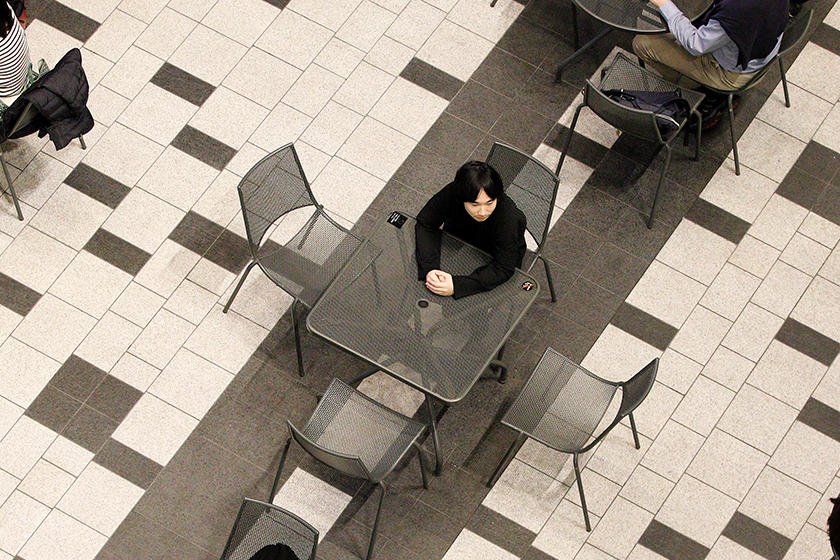
Doing a performance is like making a movie
Speaking of electromagnetic punk, I have a wish to make a movie. For me, doing performances is like making scenes in a movie. I am the director and the eyes of the spectators are the cameras; the performers are the people who live in an electromagnetic punk world with their musical instruments, while the music that is played there is the soundtrack. (laughs) In the evening, people start beating the CRT-TV Gamelan or playing the Sempookin (Electric Fan Harp), and the story begins from there...Having everyone participate in the School of the Future Festival would be like seeing an ultra-high definition movie shown realistically before my eyes.
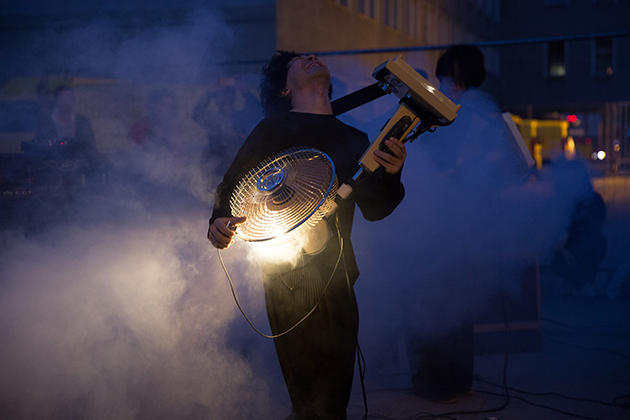
Sempookin (Electric Fan Harp)
A musical instrument made from attaching a lightbulb and a disc with a hole to an electric fan; when it is turned, the lights blink, and sound is emitted as the blinking is transformed into electric signals. The instrument is held like a guitar; the performer wears a shoulder strap, and plays it by turning it round and round. The sounds are like those of an electric guitar.
Photo by Mao Yamamoto
So we will be expressing the electromagnetic punk world in Roppongi. If I could do anything in Roppongi, I would like to have an electromagnetic "mikoshi" (portable shrine) or "dashi" (float) carried in the streets. And if there is a place to install it, it might be interesting to have a spot for the "electromagnetic kiss." I was once asked to do something for a friend's wedding, and I suggested having an electromagnetic kiss, and it was actually carried out. I made a device so that when the groom and bride touched a CRT-TV screen, they carried low frequency waves, and a huge booming sound was emitted the moment they kissed. The couple was delighted and told me that they had made a wonderful memory; the temperature of the whole room seemed to become considerably higher too. (laughs)
The appeal of mysterious culture found in chaotic places
I like towns in the Middle East and Asia which are a bit cluttered and chaotic. In March last year, I went to Hong Kong, and was particularly fascinated by the karaoke being held in the streets. On the weekend, people sing karaoke as they please on a road that is about a kilometer long. Public-address systems are placed every few meters along the road, and there are people singing at each one of them ― it's a chaotic situation. And there are crowds surrounding the singers, dancing to the songs. The spectators range from young people to grandmas and grandpas, and the songs are of all genres. Some of the people singing are apparently a bit like idols, and you can tell from the atmosphere that people have been looking forward to seeing them. There were also some odd people such as a person dressed as a swan and dancing ballet, and an old man who was showing off his skill of keeping a large pot on his head with the music of Michael Jackson playing in the background. (laughs)
At this street karaoke, I also sang a song. I was searching through the songs and found they had Spitz's "Kaede", so I sang that with passion, at the top of my lungs. (laughs) The street karaoke was a scene that was filled with energy, and was so captivating. The Japanese are shy, and so they might think it would be embarrassing, but I'm certain that if they go there, they will be cheered up. It would be fun if we could have that street karaoke in the streets of Roppongi.
Thinking beyond borders to create a new future
In the future, I would like to do overseas activities for our project of turning electric appliances into musical instruments. Last year, we did a live performance, exhibition and workshop at Ars Electronica (in Linz, Austria); people from different countries came to the workshop and experienced the world of electric appliance musical instruments. I felt then that electrical signals overcame the language barrier and became a common communication tool. So far my activities with "Electronicos Fantasticos (Nicos)" have been in Japan, but I felt that there is plenty of potential for collaboration with people in other countries too.
Specifically speaking, an idea is being floated for a project overseas to turn local electric appliances into musical instruments. In Linz, Austria, which is where Ars Electronica is headquartered, I would like to make musical instruments together with the local people, buying the materials at the flea markets. The first dream I have is to play one piece of music together with everyone. Some people have told me that they would like to do that, so I wish to exchange contact information and take it to the next level.
I also hope to share the knowhow and my thoughts on making musical instruments with people in not only Linz but in many other countries. With the project in Japan, the members share information, and I don't mind teaching. At Nicos, people other than myself - mainly the members who are engineers ― are inventing new instruments and the creativity is flowing endlessly. While I discovered that sounds can be made from the electromagnetic waves that come from CRT-TVs, and from rotating electric fans, the members are making updated versions and beginning to make their own instruments. Seeing everyone take the initiative in creating things makes me feel that another door has opened.
It would be fun if the seeds we are sowing flew to all sorts of places. For instance, perhaps in Thailand, someone could be making a musical instrument from an electric fan, while someone in Turkey could be beating a CRT-TV screen. And the sounds would be different according to the region or country. It would be interesting to hold a session somewhere with people from different regions bringing the instruments they have made, or we could form an impromptu band and make music by sharing files. An electromagnetic band without frontiers ― that is what I dream of.
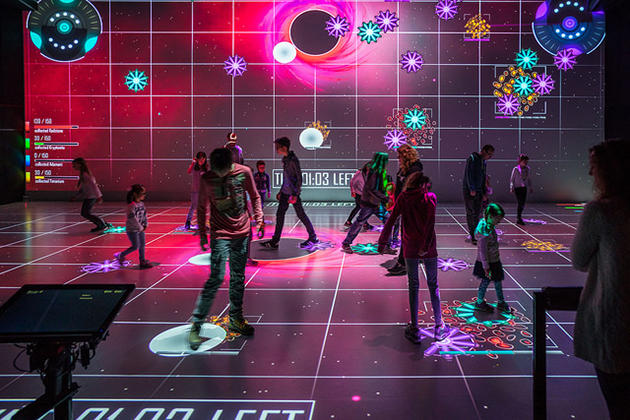
Ars Electronica
Known as a festival of arts, the latest technology, and culture, Ars Electronica Festival is an annual media art event that draws many visitors. In 2017, Ars Electronica and Tokyo Midtown began a joint project, holding events which allow participants to think together about the society of the future.
Editor's thoughts
While deftly dealing with electromagnetic waves with the mind of a scientist, Wada-san also has the imagination and vocabulary of a person of literature, thinking of fantastical things and vividly describing them. His thoughts seem to be both simple and complicated like those of a boy, and he seems to enjoy everything in life. During the interview, his facial expressions changed many times and he kept bursting into laughter; I could understand how his charming personality naturally draws people to him. My thoughts turned to the "energization ceremony" at the School of the Future. I felt convinced that Wada-san would do his best to make the experience enjoyable for everyone. (text_akiko miyaura)
RANKING
ALL
CATEGORY




